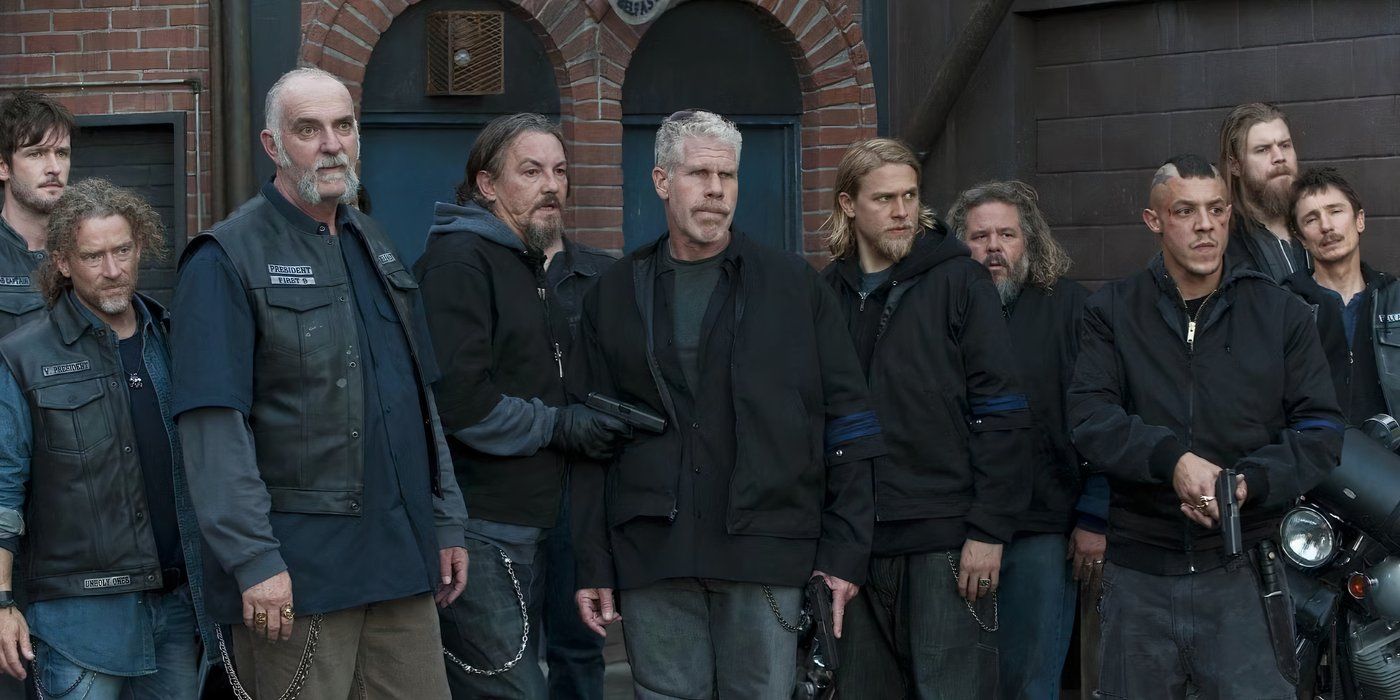Sons of Anarchy: A Dark Ride Through Brotherhood, Crime, and Loyalty
Sons of Anarchy, created by Kurt Sutter, is a gripping American television drama that delves into the violent, morally complex world of an outlaw motorcycle club. Set in the fictional town of Charming, California, the series follows the lives of the members of the Sons of Anarchy Motorcycle Club Redwood Original (SAMCRO) as they navigate crime, loyalty, and family over the course of seven intense seasons. With a blend of action, drama, and raw emotion, the show examines the fine line between brotherhood and betrayal, law and lawlessness, and the personal costs of power.
At the center of the series is Jackson “Jax” Teller, played by Charlie Hunnam, the intelligent and conflicted vice president of SAMCRO who gradually assumes the role of president. Jax is a man torn between his desire to honor the legacy of his father, John Teller, who sought to legitimize the club, and the harsh realities of the criminal enterprise that his stepfather Clay Morrow, portrayed by Ron Perlman, maintains. Jax’s journey is both heroic and tragic as he struggles with the burdens of leadership, loyalty to his “brothers,” and protecting his own family.

The show’s strength lies in its complex characters and morally ambiguous storytelling. SAMCRO members are depicted as both ruthless criminals and deeply loyal friends, often facing ethical dilemmas that challenge their notions of right and wrong. Female characters, including Gemma Teller Morrow, played by Katey Sagal, add layers of intrigue and power dynamics, highlighting the often-overlooked influence of women within the male-dominated biker culture. The relationships within the club, fraught with tension, betrayal, and camaraderie, form the emotional backbone of the series, giving it a unique depth beyond typical crime dramas.
Sons of Anarchy is also notable for its detailed portrayal of outlaw motorcycle culture. The cinematography captures the gritty realism of small-town America and the adrenaline-fueled chaos of club life, from roaring motorcycles to clandestine operations. The show’s use of music, often blending classic rock with contemporary tracks, amplifies the emotional intensity of both action-packed and reflective scenes. Symbolism, particularly the club’s emblem of the Grim Reaper, reinforces the themes of mortality, loyalty, and inevitable consequences of a life outside the law.
Throughout its run, Sons of Anarchy tackles broader social issues, including corruption, racism, addiction, and the impact of violence on communities. The narrative weaves these elements seamlessly into personal stories, making the stakes feel both immediate and profound. The series is not merely about crime; it is a study of power, family, identity, and the consequences of choices made under extreme circumstances.
The legacy of Sons of Anarchy lies in its ability to balance thrilling action with deep, character-driven storytelling. It remains a seminal work in modern television for its unflinching portrayal of loyalty, brotherhood, and the moral complexities of living on the edge. The series captivates viewers with its intense narrative, unforgettable characters, and exploration of the fragile yet resilient bonds that hold people together in the face of chaos.



